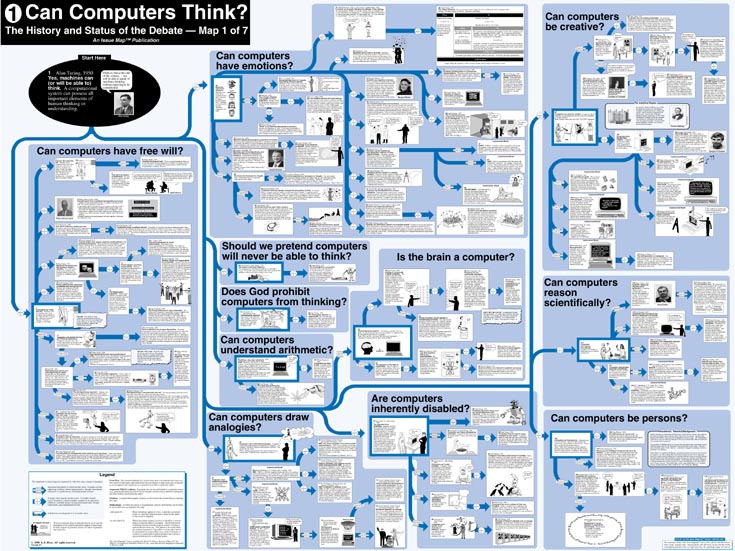Can computers think? [1]
Can a computational system possess all important elements of human thinking or understanding?

A full-sized version of the original can be ordered here
The questions explored on Map 1 – Can Computers Think? are:
- Can computers have free will?
- Can computers have emotions?
- Can computers be creative?
- Can computers understand arithmetic?
- Can computers draw analogies?
- Can computers be persons?
- Is the brain a computer?
- Can computers reason scientifically?
- Are computers inherently disabled?
- Should we pretend that computers will never be able to think?
- Does God prohibit computers from thinking?
The set of maps focuses on the philosophical debate around Alan Turing's
assertion in 1950 that:
"by the end of the century... one will be able to speak of machines thinking without expecting to be contradicted"
In the context of the debate map, this assertion is taken to mean that a computational system can possess all important elements of human thinking or understanding.